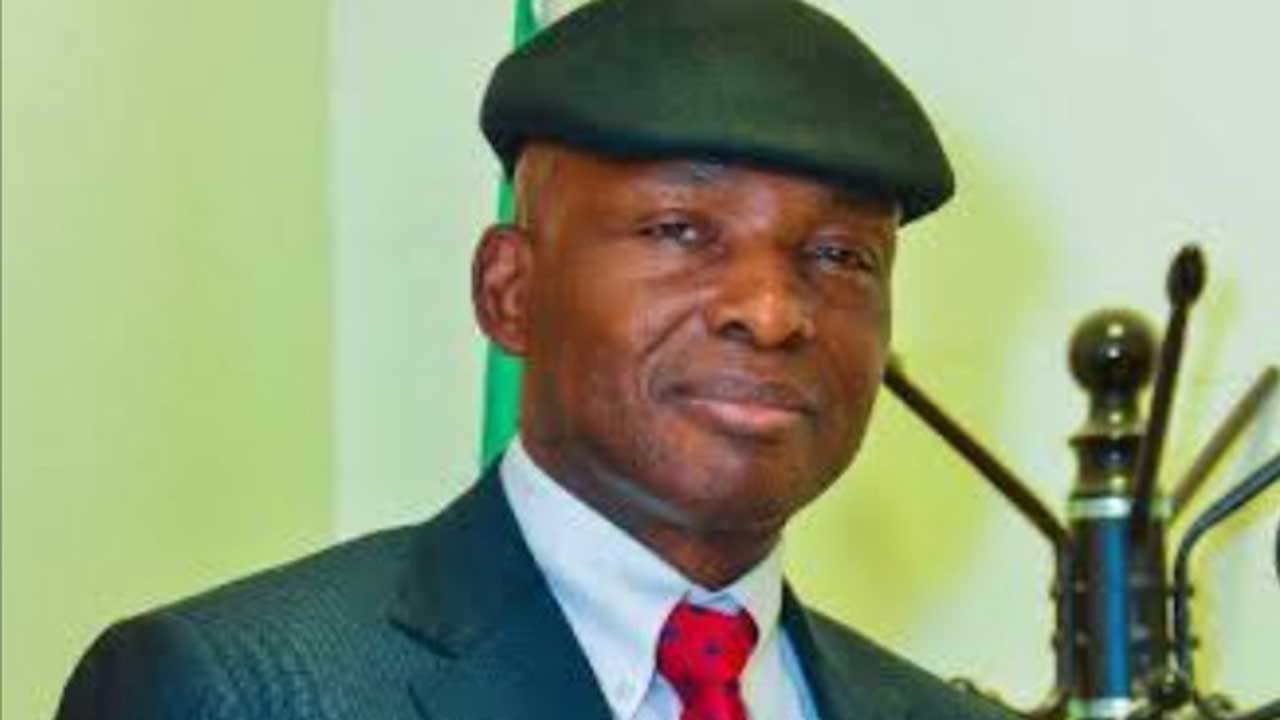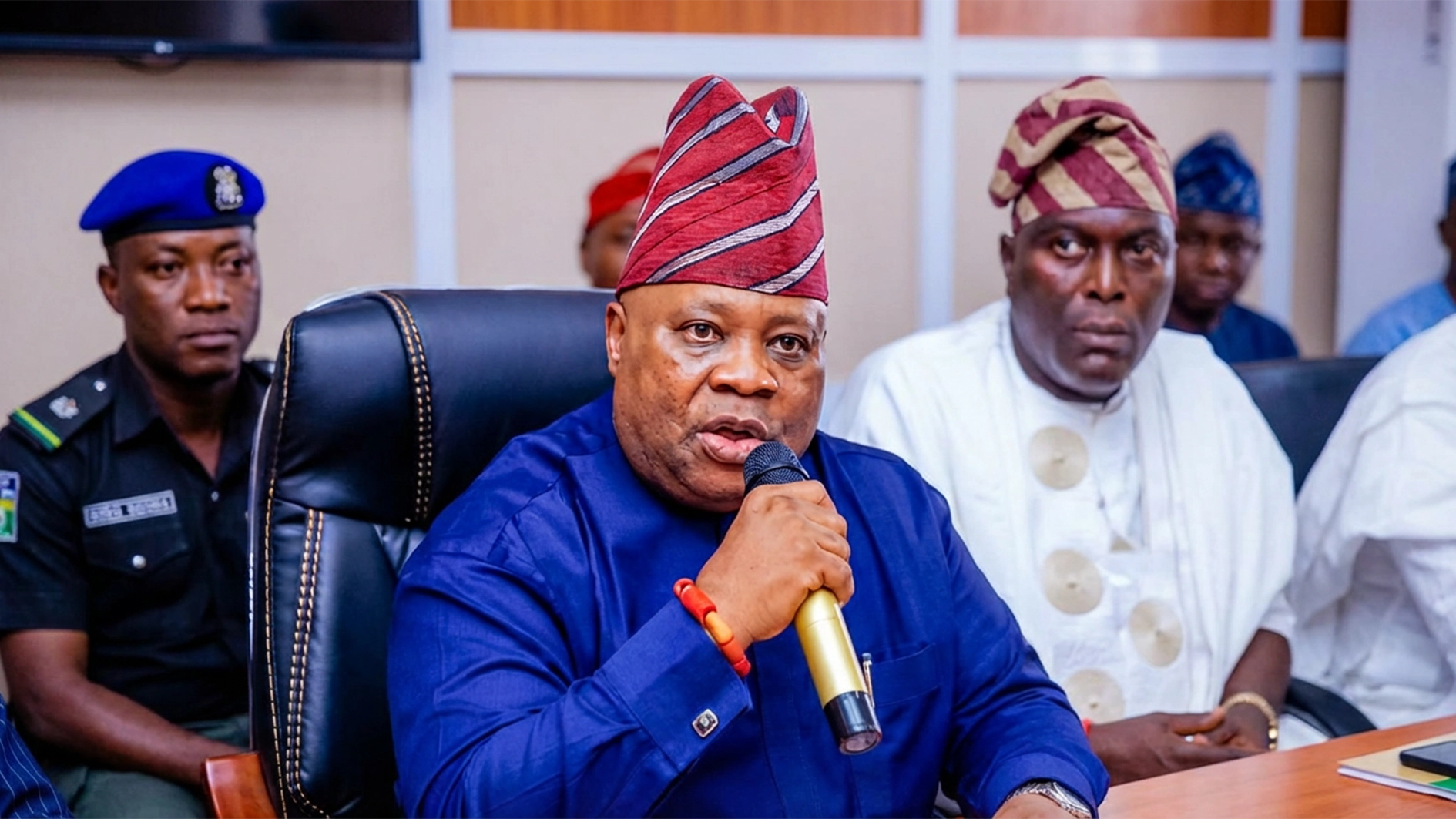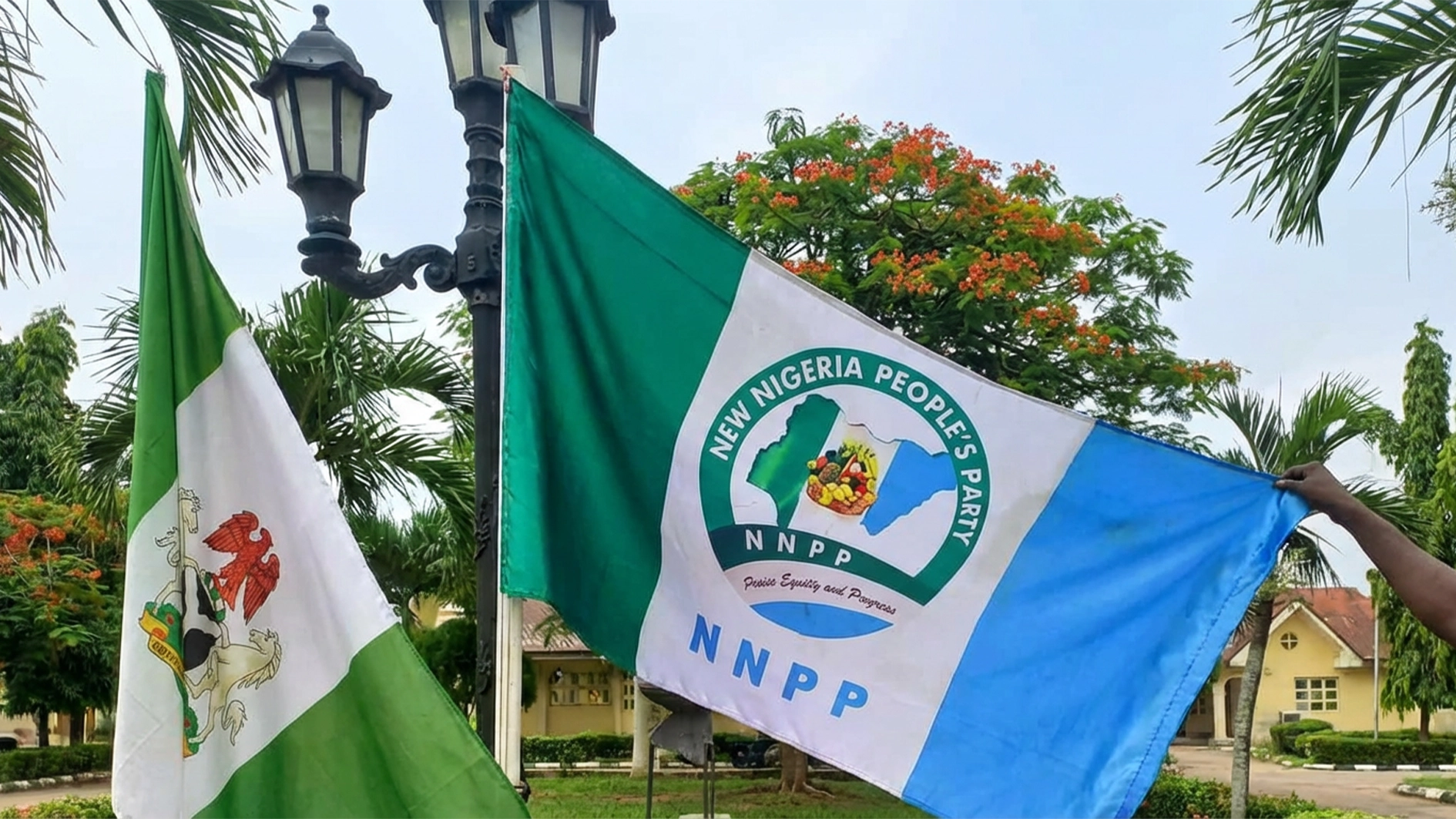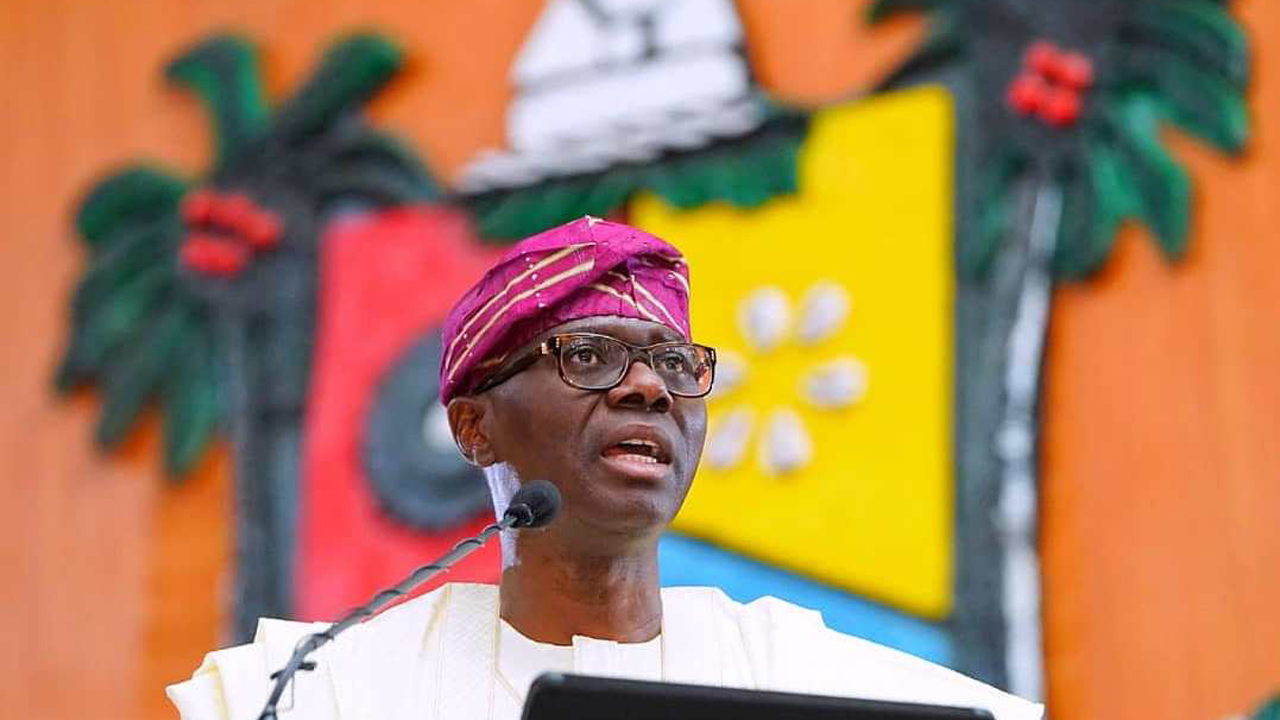
Lagos State Governor, Mr. Babajide Sanwo-Olu, in this interview, monitored on Channels Television, spoke on a number of issues including management of COVID-19, security and fourth Mainland Bridge.
There is this saying that if you can recover from COVID-19, then you can handle anything and come out victorious. Having recovered from COVID-19, do you feel you can take on anything and come out victorious?
It is not about the way one feels because COVID-19 presented itself differently for different patients. I certainly would be the first to say to you that it was a different experience even in my family; the way my wife reacted is different from the way I reacted and likewise few of my staff reactions were different too, but coming out of COVID-19 gives a clear indication that we need to take things very seriously, because the way in which each and every one of us react to it are very different. I would say my own was a mild, moderate case, others were just asymptomatic and some people were very severe. But if you think coming out of COVID-19, I can handle everything and anything, I would certainly not agree with you, but I will give it a good shot.
I certainly also have to continue to lead from the front as the incident commander in the state. So, what it requires is to continue to show leadership and to continue to tell our people that they have to take responsibility, but the government will indeed do its very best at all times to ensure that it keeps all of its citizens safe. And for us doing that means that all the requirements that we need to do as a government like scaling up the treatment, provision of facilities and equipment required, we would do everything to ensure the safety of our citizens. For me, I am certainly not going to back down. We are not shying away from our responsibilities and we will continue to encourage our frontline health workers, who are usually in the eye of the storm, who are the real heroes in all the attempts to flatten the curve and come out of this very difficult second wave that we are currently seeing.
Last year, after COVID-19 lockdown and EndSARS protest, we saw a lot of people losing trust in government and I am sure you have been getting feelers from people out there. If you were to speak to that person who seems to have lost trust in government, what will you be telling them?
If you don’t learn from what has happened yesterday, you probably don’t have a tomorrow. So for me personally, it is not really to dwell so much in the past, learn from the past, but have a conversation going forward; have a plan, have an agenda that you can take forward. So, what I would say to a whole lot of our young citizens and everyone is to say that as a government and person, we have learnt so much from 2020. We have learnt from a pandemic that has never ravaged the world in 100 years and which has Lagos at its epicenter in Nigeria.
We had protests that we have never seen in this part of the country before and the aftermath of it, as a government, we have learnt from it. We have seen all the bites and conversation coming out of it and we are saying transparently that, let all of us together take it forward and build a better society for ourselves. How else can we do it? We don’t have anywhere to go to; we don’t have any other country, we don’t have any other state. So, it is in our individual and collective interest, that will build things for ourselves and future; that is what I will say and that is the encouragement that I want to leave with all of us. And I kept saying this; for me as a person, as long as I have this mandate, I will not shy away from ensuring that I give hope to my fellow citizens. And we will take all learning and lessons forward and build a better and stronger future for ourselves.
Talking about COVID-19, you are the incident commander for Lagos, which has over 40,000 out of the national 120,000 cases. That is clearly a huge burden on you. Last year April, you formally announced that facemasks are now compulsory in public places in Lagos and failure to use face mask in public will attract penalties. Is the enforcement still going on?
Just to put the figure right, we have actually crossed 44,000 cases as we speak (January 24, 2021). But to also put in proper context, the current figure is coming out of a test of about 280,000 that we have done in the state, which is more than half of what is done nationally. So, that has given us the positivity of about 16 per cent. But in terms of compliance and enforcement, when we brought out those rules in April/May last year, people still didn’t have the level of understanding they have today; they still believe that it was something that was foreign and it is something far from us, but right now, almost everybody understands and sees that it is real, especially the second wave. After the first wave slowed down, this second wave has shown us that we cannot take this pandemic for granted. In terms of level of compliance, I will not say that a lot of our citizens are complying, but if you come to any of our offices and public buildings, the enforcement is there. You cannot enter my office, our secretariat in Alausa or any of our government building without wearing a facemask. And if we can do that, all it takes is for everybody to take responsibility. If all the managing directors in the banking sector say to their staff and customers that you cannot enter their facilities, if you are not wearing a face mask; if every manufacturing company, church and mosque say the same thing, if we all take responsibility and issue out the same thing, then you we will see a 99 per cent compliance. It is not about government bringing out police and chasing people that are not wearing it, it is about ensuring we understand that it is role sharing. All of us have a role to play and everybody just needs to play his or her part. As a media practitioner, you have a responsibility to also help us communicate and tell our citizens that it is about them; it is about their loved ones. It is not just that Sanwo-Olu wants you to just put up a mask on your face; it is because of what the medicine and health practitioners are telling us, that it is the only way we can reduce transmission and that is the right thing for all of us to do.
We have seen events and parties being organised and people are asking why the government needed to wait till after those events take place before enforcing the COVID-19 protocols. How about you ensuring that before any event is hosted, people sort out permit issue, so that we can avert a possible transmission that may arise from the event?
This is exactly what we have done. We have permit, clearance and certificates that were issued to every event centre and the protocols are well stated before the clearance was given. I have got letters written to me by owners of these event centres appealing and requesting that they are sorry and that they didn’t know their customers were going to flout the rules. And I said no, we gave you the protocols and all the things you should comply with but you flout it. They have left the premises, but it remains shut. So, we really cannot police every of the 5,000 event centres that we have, but what we have done is that, we have issued them certificates. And if you are law-abiding, we have issued the protocols for you. We have told you the number of people that must be on a table. What should be the spacing of every table that you have and it is just a very simple thing for people to comply with. How many officers do I have in the Lagos State Safety Commission? I have like a thousand of them, how will they be able to go round and cover 5,000 event centres? What we are saying in essence is that, people need to understand and know that we are in an era where people need to take responsibility for themselves and their loved ones. Of what benefit is it when you go to a social gathering; either you are infecting people or you leave your house or leave the event and start infecting people in your own houses that were not even part of the social event. I think it is just carelessness and recklessness on the part of people that get involved in that. We have made a few examples and some of those places we have shut them down and they will shut down for a while.
Let us also talk about home care, which makes infected people to get treatment at home. How is the State Government monitoring home care in such a way to prevent further transmission?
We have a home-care pack that we give to them and in the pack, all of the medications are there. But beyond that, we also follow up with what we call EkoTELEMED call centre by which healthcare professionals call home care patients on a daily basis. The number is 08000EKOMED. Health professionals are on the other side of the call centres in which they are dialing you, monitoring and asking you questions. In the home-care pack we give out, you have your hand sanitizers, face masks and temperature gauge. The professionals will call and ask you all necessary questions, such as “What is your temperature today? How are you feeling with the medication you are using? Are you still able to isolate in your house, home or wherever you are?” And if they realise that maybe your symptoms are not getting improved or your condition needs to be escalated, they will make arrangement to come and pick you up and that is kind of things that has been happening.
Lagos has over 44,000 cases and that show the magnitude of how many people who need to be vaccinated in a state with a population of about 20 million. I know that governors recently met under the Nigeria Governors’ Forum (NGF) and there were some discussions about vaccine deployment or purchase. Seeing the peculiar position, which Lagos has, as the epicentre of this virus, are you planning to purchase vaccines outside of the NGF’s plan and the Presidential Task Force (PTF) on COVID-19?
We are having conversations on this at different levels. We actually want the Federal Government to take the lead. As a sovereign, they have all the protocols and contacts to make that happen and we are conversing. We are still having another meeting on Tuesday with PTF and NCDC under the federal umbrella. Internationally, there is also a coalition that has come together; about 190 countries working with the World Health Organisation (WHO). There is a list of how they want to be able to ensure that even the poor nations and the fairly-disadvantaged nations must also have the vaccines at some point in time. So, Nigeria has got involved in that, but we want the nation to take the lead and we are giving them that space as a state and because they are sovereign they can have that conversation. But other than that, as a sub-national, we are also taking our destinies into our own hand. We have started conversation with some of the vaccines manufacturers. I have made contact with Pfizer and Oxford-AstraZeneca. Johnson and Johnson are not out yet. The Moderna has written to us and we had written back to them. So, we are making our sub-national contacts and part of the thing that will come out of it is that once we see what the national is doing; because this is something that we do not want to be dealing with middlemen or people that are not in the frontline supply chain of some of these vaccines. We don’t want to run foul of the protocols. But we have started making contact, even at the board level with the manufacturers. But how that will work out, we still have one or two weeks to see, but we have started making the contacts already. And it is important for me to make this clear; we don’t have to vaccinate the 20 million population that we have in Lagos State. The plan is just to ensure that there is an herd immunity and that typically speaks about 50 to 60 per cent of the population. That is the kind of target we really need to meet.
With that target, how much funds is Lagos State setting aside to purchase vaccines?
The conversations are still at various levels. We are speaking with Organised Private Sectors. So, they can also help us raise some of the finance that is required. We have our friends in the private sector, who are telling us that they understand that this is public health issue, but they also want to work with us, because our citizens are also their staff. We can have conversation and have a middle point that we will be able to jointly raise the finance that is required. So, we have a decent amount in our budget around COVID-19; billions that we put in there. Certainly, it will not be enough, but a lot of grants will also come in from Gavi, a global body we are speaking to. So, we know there will be support that will come in, but we can make the first step in ensuring we put our money where our mouth is. But we are working with the private sector to be able to raise the required funding for this.
Considering Lagos population of over 20 million people, which was expected to hit 35 million by 2050 according to estimation. Do you agree with those who say Lagos is overcrowded?
Maybe the right word is not overcrowded; maybe there is a lot of pressure on the infrastructure. There is a way in which you can plan a city and even with the population, we can actually turn it into positive energy. If you have data, which is one of the things that is lacking in our environment here, which is one of the things that we are actually also working on. With data, you can do a lot of planning. With data, you can actually estimate and know that even in different local governments, these are the number of schools you need to have, number of hospitals you need to build. Once you do that, then you can serve your people very well. But when you have undocumented people, when you don’t have an idea of how many people are coming in, then it makes a nuisance and mockery of whatever you are doing. So, those are the kind of things that we need to be able to balance.
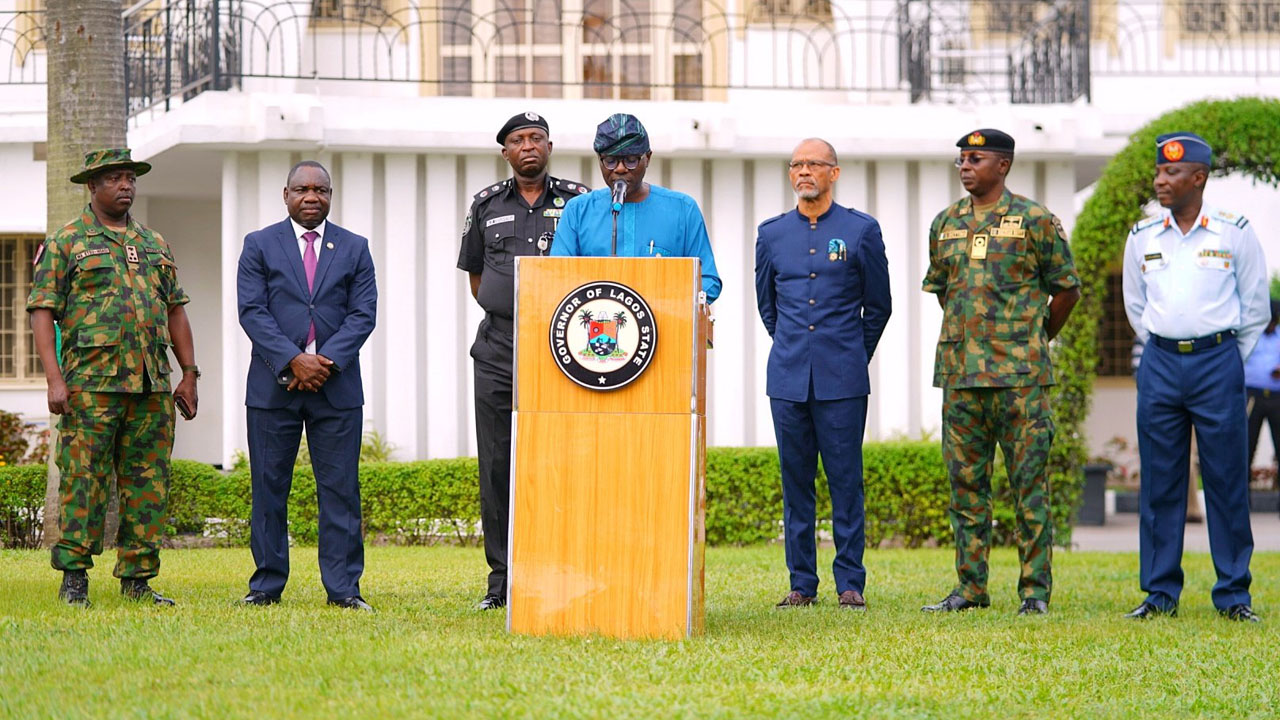
Once we do that, what we just need to do is to ensure to use your land efficiently? Places where you do not need to have one storey, you need to go vertical; you creatively design your model to be able to have a livability standard that is equal to other parts of the world and make the city very resilient. Those are some of the things that we are working on.
The Third Mainland Bridge repair is ongoing. What does 2021 hold for the Fourth Mainland Bridge you have talked about?
It is not only Fourth Mainland Bridge; Fourth Mainland Bridge is just going to be one of our deliverables. Fourth Mainland Bridge I must say is really off-balance sheet development. It is a PPP model and it is something that will marvel all of us. We are hoping that we can sign a concession before the end of this year. It is a 37-kilometre ring road. It is like M25 that you have in the United Kingdom and it is eventually going to hit the Lagos-Ibadan expressway when it finishes. But Fourth Mainland Bridge is just one of it, but there are several landmark infrastructures that we will be delivering; our rail projects, the redline and the blueline. Before we end our administration, we believe it should be up and running. We are doing several bridges in the regional roads, the bridge in Pen Cinema, which will be commissioned sometime next month or the month after. We are building roads in Ikorodu. We are doing road from Eleko Junction towards Epe. There are other connecting roads and we are spreading development right round the city. It is not only in one place but Fourth Mainland Bridge will be an icing because it is a 37-kilometre ring road that will take you from part of the city and take you right round exit of the city. So, it is something that we are really expecting, but like I said it is not on our own budget; it is an off-balance sheet item, meaning it is a PPP concession.
The last time we had conversation about security in Lagos, a promising young lady, Moradeun, had just been robbed and killed around Gbagada then, but today a 22-year-old David was killed in similar circumstance, but this time in Jibowu. We have a lot of people detailing their experiences in hotspot areas like WAEC, Yabatech, Moore Road, and they went on and on detailing how they were accosted by some individuals, some at gun points, some with machetes, some with knives and they were robbed of their valuables, some sadly died. What has changed and what are you doing regarding this?
It is also fair to say what has changed; a lot has changed and a lot we are doing right. The statistics were showing that, indeed up to the effects of the EndSARS where police left the streets and we had to get them back, we were actually on top of security issues. If you remember even during the lockdown when we had issues of cultists in Agege and other parts of the city, we were able to nip it in the bud very quickly and we put a stop to it. One of the things that you will see is that we kept talking about how we need to reduce or bring down the command and control of our security architecture, talking about state police and having them domesticated. There have been some attempts on that line where we now have the constabulary community police just trying to start up.
For me, the whole strength of policing or security architecture is intelligence. You need to have proper intelligence and you need to have the same amount of skill that is required at every point in time. So, these are some of the things we are doing with the Lagos State Security Trust Funds. We are supporting the Lagos Police Command with equipment, transport requirement, vests and supplies that they require. The only thing we have not been able to do in this government is to buy them guns, which we are even still having conversations on. But one of the things, which we think we can do very quickly is to improve the ratio of police to citizens’ numbers; that has not happened in the number of years. We believe that Lagos is under-policed in terms of the ratio. We believe that the population is growing and we don’t have the same growth in the number of police officers or law enforcement officers that we have. So, that is some of the places where we have the imbalance. If we can get the ratio and proportion right, then we can see a lot more activities where the turnaround time of when there is emergency call is raised or a distressed call comes up, you can see a quicker response between when it happens and when they respond. These are some of the things, as a nation, we need to have a conversation about and solve.
But for me as a governor, the minimum I can do is to be able to up the skill, infrastructure, and equipment of the numbers that we have in the Lagos State Police Command and give them all the support they require. How we increase the number of police today from 20,000 to 30,000 or 35,000 is a conversation that we have been having with the Federal Government and that is why we have been saying that, not until when we have full state police, I cannot take a decision that I want to recruit into the state police force. But if there is a state police, I can decide that I want to recruit 15,000 or 20,000 fresh people into the state police force and these are some of the things that we have been talking about that can increase police to citizen ratio. In other parts of the world, it is that ratio that you see that speaks volume and you can have quicker response time. The second part of what we are building is what we call a Smart City. We are doing a 2,000 high definition CCTV camera infrastructure architecture in the state. Technology is one of the things that we believe we can use as a strong tool to help with security architecture and make them do their work very well. That project has started and before the end of this year, you will see a lot of cameras that are going to be installed on the streets. They are high definitions cameras, meaning they can have facial and plate number recognition and they can also be active at night. Once we build a proper command and control centre, then the police even with the data that will be coming out from the cameras, we can have a lot more arrests and get more deterrents because once they know that there is likelihood of being arrested, people will be more careful.
The final thing is really around providing jobs and opportunities for some of these people as an alternative, because people will also say they go into such heinous act because they are unemployed and don’t have what to do. Once we are able to push that platform, even if you still have criminal intentions, then the law must take its course on you. But some of these things are things we need to provide very quickly; increase the ratio of police to citizens that we have in Lagos, and that we are ready to work with the Nigeria Police Force whenever they are ready for that. State Police is still a way to go; we will continue to talk about it and thirdly, technology, security architecture and infrastructure we need to build for them.
In Lagos, if your car breaks down in some specific areas, in short moments you see a group of young men gathering, asking for money and they do it violently. Recently, a filmmaker put a video on the social media to show just what they have to go through just to shoot films at locations. They said they were faced with “Omoonile” who ask for specific amount of money so that they can film and do their jobs. This is the experience of a lot of Lagosians. It is not really about unemployment because these people are able-bodied people that can actually work. Is there something more fundamental to this beyond some of the solutions you have proffered?
I have proffered solutions but when you begin to talk more specific like the issue of Omo onile and you want to shoot a film, what are the rules of engagement? If you want to go to a place, do you ask if there is a permit that you need to have. Do you know if it is a private property that you are into? These are some of the things that we need to know. If you want me to talk generally, I can do that, but if we get to specifics and say a particular incident happened, we probably don’t have all the mix around that particular incident, we don’t know. But indeed to be able to answer and tell you about the broad things we are doing, these are the kind of things they do in other climes that we are talking about. If you are going to film somewhere, there are rules that will guide that; maybe you just need a permit to let the owner of the property know of things you want to do and I think there will be easier access that way and you will be able to do your things easily.
But part of the problem that we have is that everybody thinks that everything is open to everyone. These are some of the things that we need to change. If we also want a better society, people also need to understand that there are rules that will help all of us. Nobody has monopoly of anything; there are rules that will guide all of us. So, the essence of government is to be able to transparently set out those rules and people follow it through and ensure that we all build a better and more prosperous society for each and every one of us. But on broad architecture, these are some of things we are planning to do and we are committed in ensuring that we do it.
With the Lagos Judicial Panel of Enquiry, the mandate is for six months, a lot of eyes are on that. The question people are asking again is “after that, what next”?
They have done about three months now and so let us be very patient with them. We have given them a job to do; it is a very difficult job. Let us be very positive that all the recommendations and decisions that will come out of it will be things that all of us will see that fairness, equity and transparency have come into it. I cannot begin to speculate or imagine what will come out of it and what will be their recommendations. We have given them a job to do, so let us just hope, sit back and expect that with the calibre and integrity of people that are there, they will do a job that all of us will be truly proud of. When they come out with their recommendations, it also depends on what kind of recommendations. If they say XYZ should be given certain amount, they have the budget to be able to do that. If the recommendation is that, a few people should be sanctioned, then we will look at the procedure of ensuring that those sanctions are meted out. If they say that some regulations or procedures should be improved upon, we will ensure that we bring out policy that will ensure that we don’t have a repeat performance. But I cannot begin to speculate what will be the outcome of what they are saying. We can only but believe in the credibility of the citizens that we have put on that panel that they will do a good job and a fair one.



